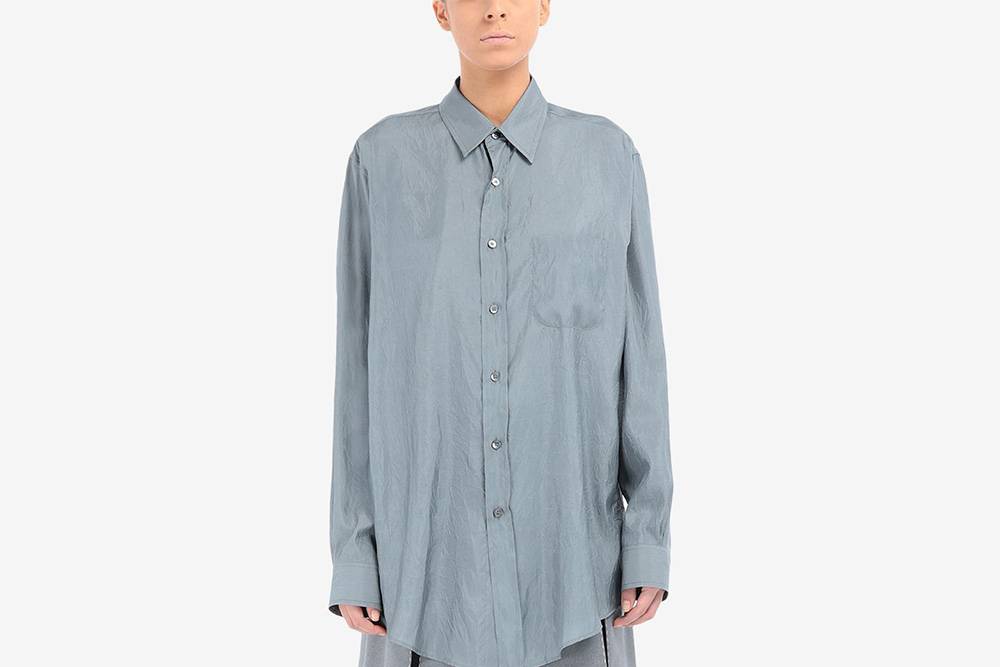
Maison Margiela is a French luxury fashion house founded in 1988 by Belgian designer Martin Margiela. It creates haute couture, artisanal collections, womenswear, menswear, bags, shoes, and accessories.
Maison Margiela is part of the international fashion group Only The Brave (OTB) with other brands such as Diesel, Viktor&Rolf, Marni, and Amiri.
The company is committed to reducing the social, economic, and environmental impact of the fashion industry. It doesn't aim to be the biggest but the most alternative fashion group.
As part of the OTB group, Maison Margiela strives to give back to society and support its overall advancement. It wants to contribute to sustainable economic and social development.
Panaprium is independent and reader supported. If you buy something through our link, we may earn a commission. If you can, please support us on a monthly basis. It takes less than a minute to set up, and you will be making a big impact every single month. Thank you!
Sustainability Rating: 5/10
Rating FAQ
Category: Clothing, bags, shoes, accessories, jewelry
For: Women, men
Type: Basics, denim, dresses, knitwear, loungewear, outerwear, flats, sandals, boots, sneakers
Style: Chic, haute couture
Quality: High
Price: $$$
Sizes: 2XS-XL, 0-12 (US), 4-16 (UK), 32-44 (EU), 6-18 (AU)
Fabrics: Cotton, linen, ramie, lyocell, modal, viscose, acetate, polyester, nylon, spandex, acrylic, leather, wool, silk, down
100% Organic: No
100% Vegan: No
Ethical & Fair: No
Recycling: Yes
Producing country: not transparent enough
Certifications: GRS, RDS
Sustainability Practices
Maison Margiela wants to stand up for the planet and make environmental commitments. It's looking for less harmful solutions for its products and packaging.
The designer label invests in environmentally friendly materials, innovative techniques, and research and development to incorporate more sustainable solutions in its supply chain.
However, Maison Margiela only uses a tiny proportion of sustainable, organic, and natural materials such as organic cotton, linen, and ramie.
The luxury brand also uses some semi-synthetic regenerated fibers such as lyocell, viscose, modal, and acetate made from renewable materials.
Many of the brand's fabrics are synthetic petroleum-based fibers such as spandex, polyester, acrylic, and nylon.
Maison Margiela has a code of conduct that applies to all its suppliers and subcontractors based on the International Labor Organization (ILO) regulations.
However, the brand doesn't provide any information regarding how it chooses its suppliers. It doesn't state how often audits are conducted to ensure ethical and sustainable production, ethical working conditions, social and labor standards, safety, and other important rights for workers in its supply chain.
Maison Margiela doesn't use any exotic animal skin, or hair, fur, angora. But it uses leather, wool, silk, and down feathers to manufacture many of its clothing pieces.
These animal-derived materials are cruel and unethical and harm the environment by producing greenhouse gases and wastes. More sustainable alternatives exist.
Sustainability Goals
Maison Margiela aims to reduce its greenhouse gas emissions, plastic, water, and energy consumption in all its operations.
The designer label has joined the Fashion Pact in early 2020. It's a global coalition of companies in the fashion and textile industry committed to stopping global warming, restoring biodiversity, and protecting the oceans.
However, Maison Margiela doesn't measure its greenhouse gas emissions, water, land, energy use, pollution, and waste across the supply chain. It doesn't have any clear sustainability goals, science-based targets, or timelines to improve in the future.
Buy Here
Discover Maison Margiela's sustainable collections at maisonmargiela.com.
Was this article helpful to you? Please tell us what you liked or didn't like in the comments below.
About the Author: Alex Assoune
What We're Up Against
Multinational corporations overproducing cheap products in the poorest countries.
Huge factories with sweatshop-like conditions underpaying workers.
Media conglomerates promoting unethical, unsustainable products.
Bad actors encouraging overconsumption through oblivious behavior.
- - - -
Thankfully, we've got our supporters, including you.
Panaprium is funded by readers like you who want to join us in our mission to make the world entirely sustainable.
If you can, please support us on a monthly basis. It takes less than a minute to set up, and you will be making a big impact every single month. Thank you.































0 comments